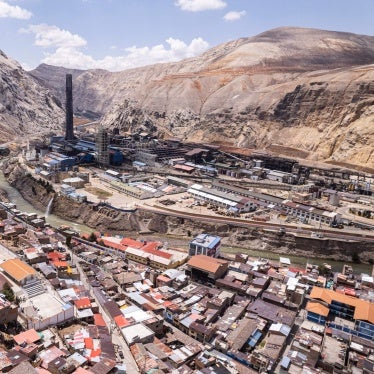Women, girls, and other vulnerable groups are more likely to be exposed to and impacted by toxic substances – including lead, mercury, endocrine disrupting chemicals in plastics, and other fossil fuel products – not only for biological reasons, but because of how they interact with their environment.
The United Nations special rapporteur on toxics and human rights is due to present a report to the UN General Assembly on Friday highlighting how the burgeoning toxics crisis – fueled by the petrochemical, extractive, and agriculture industries – intersects with gender and weighs most heavily on women, girls, gender diverse people, and indigent men.
Strikingly little attention has been paid to the impact of toxics on women and girls’ reproductive rights, despite the clear harms. Women are often exposed to harmful chemicals because of the feminization of low-income work, such as house cleaning (many cleaning products contain toxic chemicals) or because expectations around beauty lead women – especially women of color – to use personal care products with chemical ingredients.
But feminist movements are increasingly centering the right to a healthy environment within the work of protecting reproductive rights, as the need to do so becomes increasingly evident.
The new report reflects community and activist knowledge as well as the growing body of research showing the sexed and gendered health impacts of many under- or unregulated chemicals entering people’s bodies without their knowledge or permission. This can lead to painful diseases like endometriosis, a gynecologic illness, and emotionally painful subfertility, infertility, and miscarriage. During pregnancy, people are especially sensitive to toxics, and exposure contributes to preterm birth, low birth weight, and birth anomalies. Trying to protect a developing fetus or a family from harmful chemicals is a near-impossible task and a form of care work – much like supporting those already impacted by toxics – done mostly by overburdened women.
Only governments can, and are obligated to, effectively protect people from such exposure by regulating industry and reversing the spread of chemicals in our environments, which has led to microplastics in our blood, placentas, breastmilk, testes, and even brains.
Important guidance for governments on doing this using a reproductive justice approach is available. Reproductive rights and reproductive justice movements already have deep experience tackling inequities, including the insidious ways women’s bodies and reproductive health can be harmed, so that people and their communities can have healthy pregnancies and newborns.










